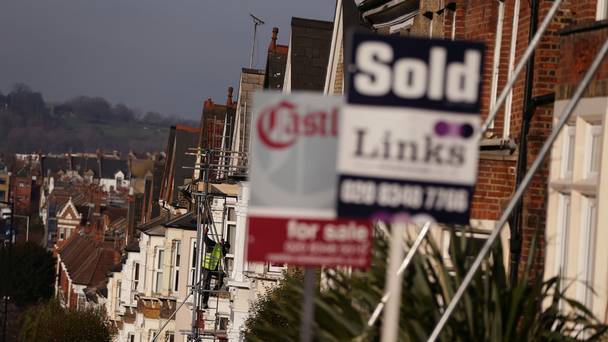The number of the most financially vulnerable homeowners in Northern Ireland could “quadruple” in the next three years, it has been claimed.
Those in the so-called “double trigger” category could be “tipped over the edge” by a rise in interest rates or welfare cuts, according to Ursula Toner of the Housing Rights Service.
And the number of repossessions in Northern Ireland has increased 10-fold since just before the housing crash, according to official government figures.
“These are people that are doubly at risk and fragile to any sort of cut and interest rate change – any benefit change will tip them over the edge,” Ms Toner told a Council of Mortgage Lenders conference in Belfast.
“That number will quadruple by 2018… we have concerns the problems may be worsening.
“There are quite a number of people who are on suspended possession orders, who are just about hanging on to making those payments and keeping their home,” she said.
Trevor Long, who heads up the Enforcement of Judgements Office in Northern Ireland, outlined the stark rise in the number home repossessions carried out here. “In 2007, I completed 139 repossessions. In 2013, it was 1,522. So you can see the scale of how things have changed,” he said.
“That meant I had to redesign how we did things – I had to put more enforcement officers on the road. The concentration at that time moved away from money judgments to repossession work.”
The amount of money taken back from debtors increased to more than £9m in the last year.
And Ms Toner said the problem of interest-only mortgages – where a homeowner only pays back the interest on the loan – was a “time-bomb”.
She said any increase in interest rates in the coming months and years would have “much more impact” on Northern Ireland than in Britain.
Meanwhile, the level of negative equity in Northern Ireland remains the highest in the UK after a boom and bust which saw prices fall as much as 60% in some parts of the province.
Ulster Bank chief economist Richard Ramsey said despite a turnaround across most business sector, the extent of public sector cuts had yet to be felt here. “It’s a game of two halves – public spending cuts are going to be much deeper,” he said.
But Jay Colville, area director for Nationwide, said for new buyers there remained a “massive amount” of mortgage deals on the market.
View this and more articles on the Belfast Telegraph.




